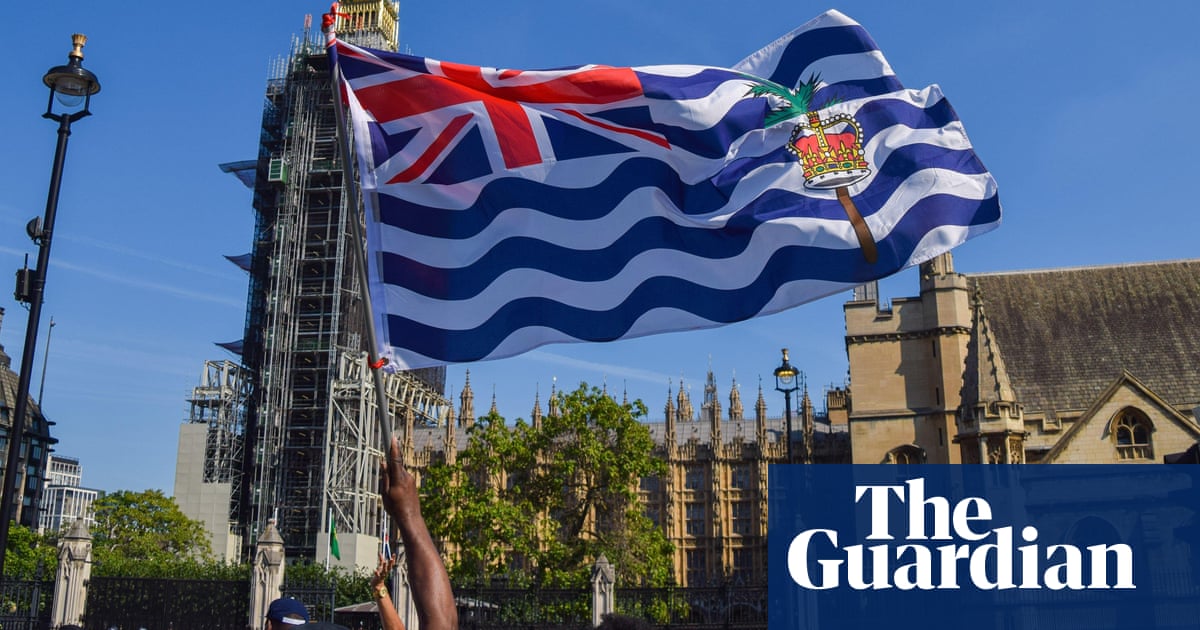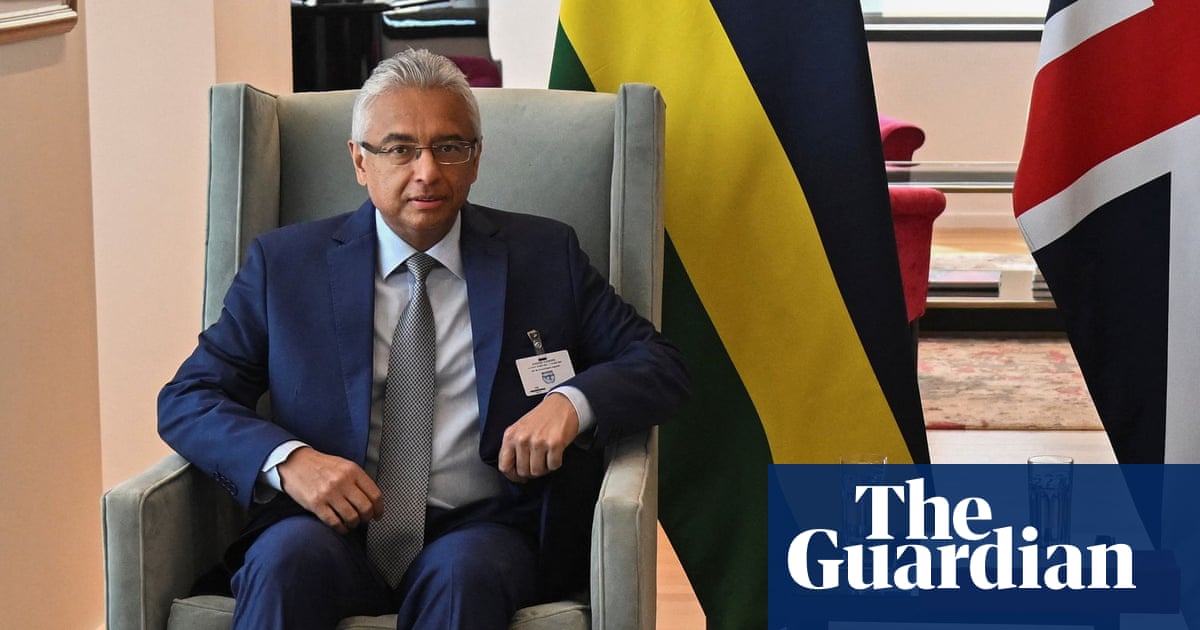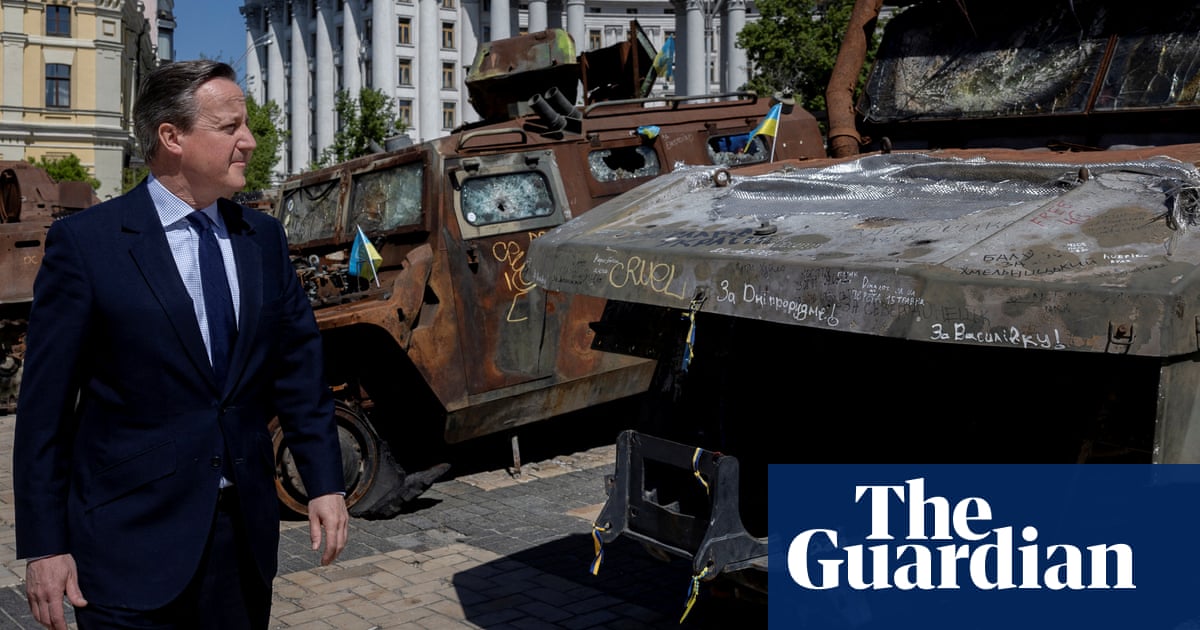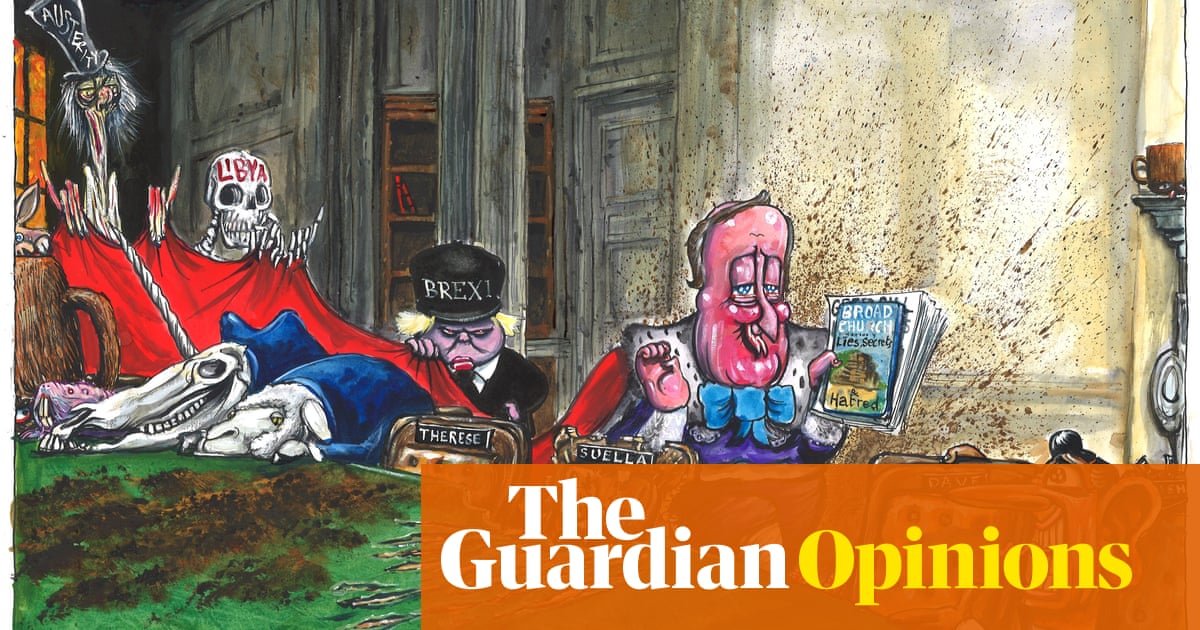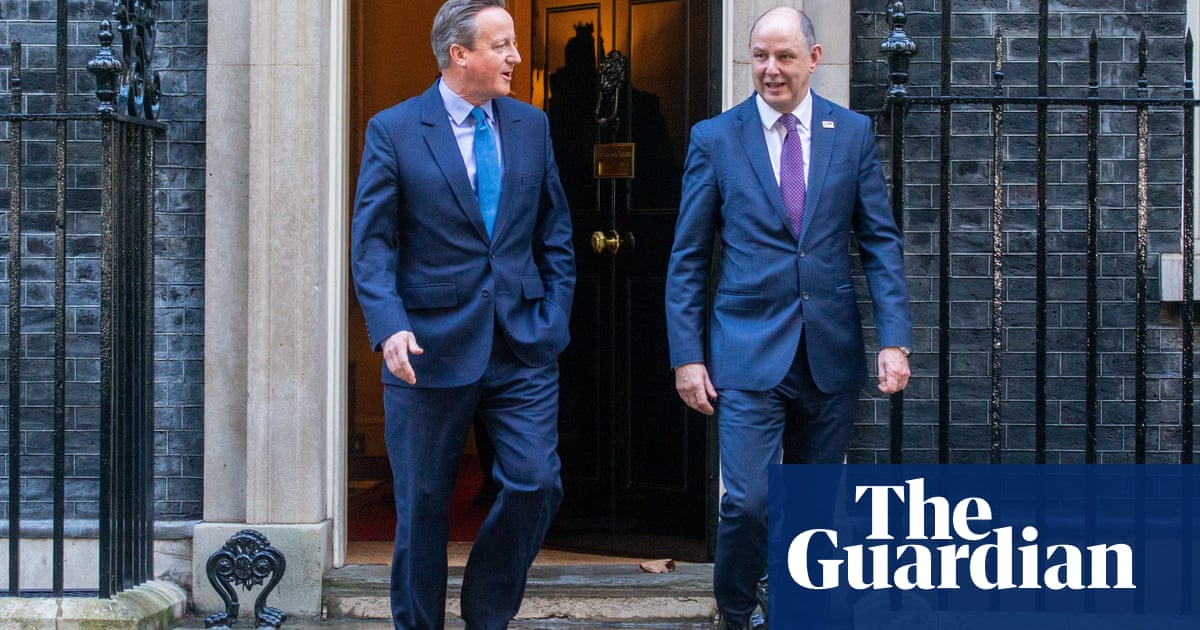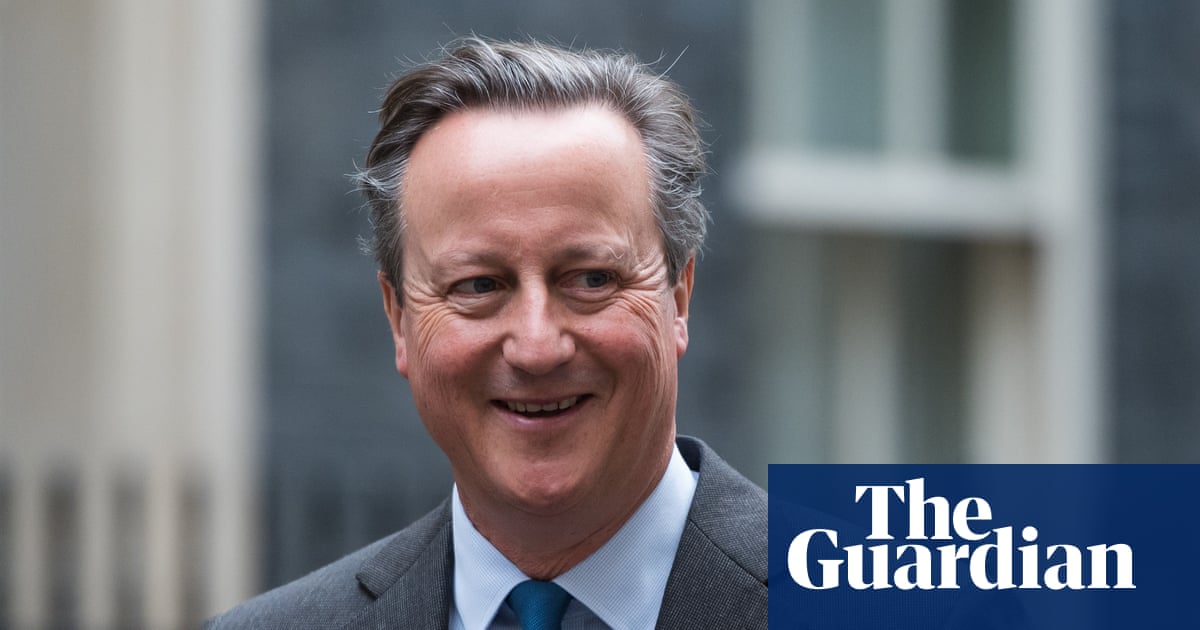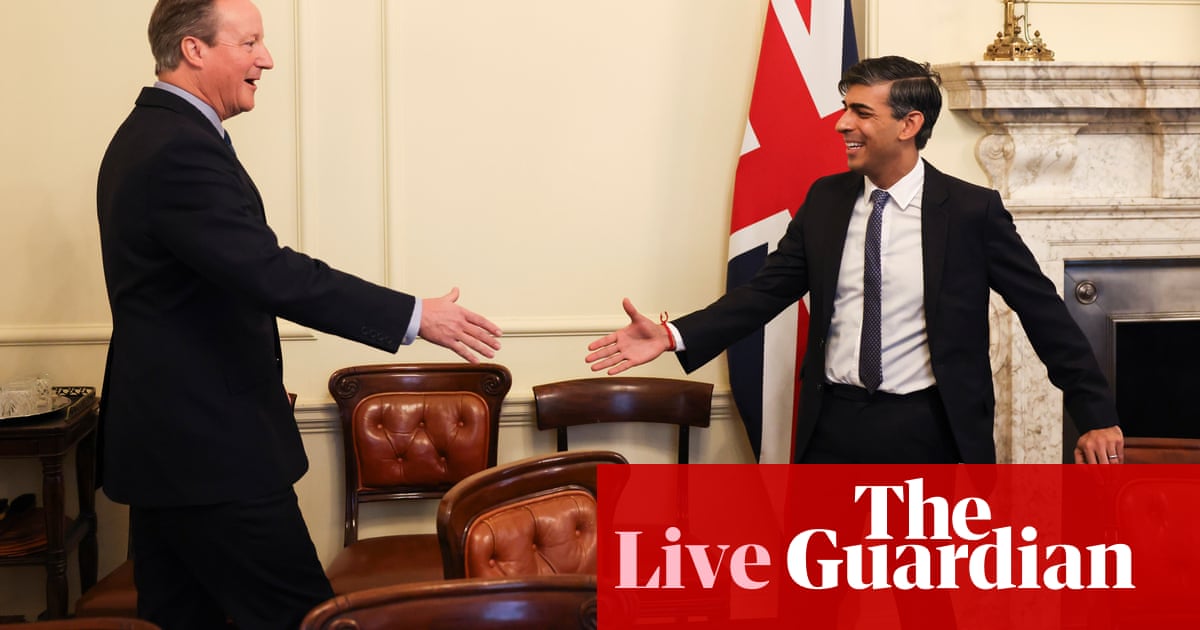
Britain’s foreign secretary, David Cameron, has provoked fury by abruptly ruling out the resettlement of former inhabitants of the Chagos Islands, months after his predecessor revealed that the UK was discussing their potential return.
The former prime minister suggested that a return to the islands was now “not possible” for Chagossians who were forcibly displaced by the British government in the 1960s and 1970s.
His stance stunned islanders who a year ago had celebrated the news that the UK was discussing the return of islanders along with a possible future handover of the Chagos archipelago.
On Thursday, Human Rights Watch (HRW) wrote to Cameron expressing its “extreme concern” over the apparent U-turn after a long-running campaign to repatriate Chagos islanders.
In their first official statements on the development, Chagossian groups criticised Cameron’s intervention.
Marie Sabrina Jean, the chair of the Chagos Refugees UK Group, said: “Cameron does not have any respect for human rights. The problem is that all UK politicians continue the fiction that Chagossians are not native to the islands and have no property or other rights.
“Whether the UK keeps the islands or gives them to Mauritius, the Chagossians’ rights must be restored first.”
A supporting statement from Chagossian Voices, a grassroots campaigning group, added: “It is our absolute right to return to our islands. Having forcibly removed us, the UK government has both a duty of care and a duty to facilitate our return.
“The decision as to whether it was ‘possible’ was – and remains – political.”
Cameron’s stance on the issue emerged during his evidence to a foreign affairs committee hearing on 9 January, in comments that contrasted sharply with those made by his predecessor in a written ministerial statement on 3 November 2022.
In March last year, the then foreign secretary, James Cleverly, confirmed that talks between the UK and Mauritius over the future of the Indian Ocean islands included “resettlement of the former inhabitants of the Chagos archipelago”.
Cleverly, who is now home secretary, had said in November 2022 that the aim was to reach a settlement involving the return of former islanders with Mauritius early last year. Twelve months later, Cameron took over his job despite not being an MP.
The HRW letter, signed by its UK director, Yasmine Ahmed, said: “We note that your predecessor acknowledged that resettlement of the Chagossians in their homeland was part of the negotiations with Mauritius.”
According to HRW, a 2014 KPMG feasibility study – commissioned and completed when Cameron was prime minister – concluded it was possible for islanders to return.
The UK’s continuing occupation of the islands, a British territory in the Indian Ocean since 1814, has prompted widespread global opposition and two high-profile defeats in the international courts.
Justifying his intervention on the issue, Cameron highlighted security requirements and the importance of the Diego Garcia military base.
However, Cleverly’s potential agreement with Mauritius indicated that the strategic Indian Ocean military base in Diego Garcia, which the UK leases to the US, would stay open.
In fact, not even Chagossian groups were advocating for the closure of the military base, but wanted to return to live on the unoccupied islands and the unoccupied part of Diego Garcia.
Cameron also caused disquiet by failing to mention the rights of the Chagossians when discussing the future of the islands.
“Central to any future decisions concerning the Chagos archipelago must be the desires, perspectives and voices of the Chagossian people,” said Chagossian Voices.
Chagossians have campaigned to return since about 2,000 people were forced to leave by Britain between 1967 and 1971 and were exiled in Mauritius, Seychelles and eventually the UK, when in 2002 they were granted the right to apply for British citizenship.
Mauritius, which won independence from the UK in 1968, maintains the islands are its own.
In 2019, the international court of justice, the UN’s highest court, ruled that the UK’s administration of the territory was “unlawful” and must end. The UK ignored the ruling on the grounds that it was advisory.
Two years later, the international tribunal for the law of the sea ruled that the British claim to the islands was illegal. Again, the UK refused to accept the ruling.
The HRW letter also accused the UK of crimes against humanity over its treatment of the Chagossian people including “persecution on the grounds of race and ethnicity”.
Jean added: “Chagossians are descendants of enslaved peoples brought to the islands by the French and Mauritians, they were freed by the English in 1835 yet still have no rights or property. This historic wrong must be corrected.”
In the 2022 ministerial statement, Cleverly stated: “The UK and Mauritius have agreed to engage in constructive negotiations, with a view to arriving at an agreement by early next year.
“Taking into account relevant legal proceedings, it is our intention to secure an agreement on the basis of international law to resolve all outstanding issues, including those relating to the former inhabitants of the Chagos archipelago.”
Cameron told parliament that he had already looked into whether Chagossians could return to the islands, claiming it was not an option.
“When I was prime minister, it was all about trying to see if we could relocate Chagossians back on to the outer islands; lots of work was done, and it was not possible,” said the foreign secretary.
The Foreign, Commonwealth and Development Office has been contacted for comment.






